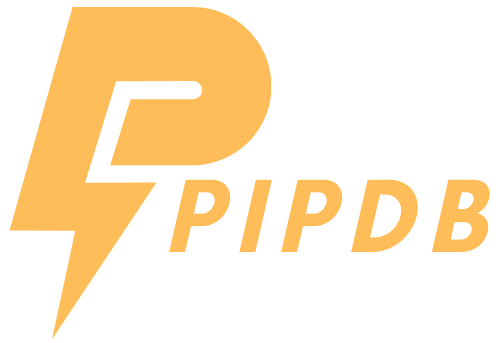A predictive dialer is a software application that is used in call centers to automatically dial a list of phone numbers and connect them to available agents. The dialer uses complex algorithms to predict when agents will be available and when the next call should be placed. Predictive dialers have revolutionized the way call centers operate, making them more efficient and effective at handling large volumes of calls.
History of Predictive Dialers
Predictive dialers were first introduced in the 1990s as a way to automate the process of dialing phone numbers. The first predictive dialers were based on simple algorithms that could only make a certain number of calls per agent.
Over time, the algorithms became more sophisticated, allowing for more efficient call routing and greater productivity.
How Predictive Dialers Work
A predictive dialer uses a series of algorithms to predict when an agent will be available to take the next call. The dialer will analyze a variety of data points, including the average length of a call, the number of agents currently available, and the number of calls waiting in the queue. Based on this data, the dialer will determine the best time to place the next call.
Benefits of Predictive Dialers
Predictive dialers offer a variety of benefits for call centers, including increased productivity and reduced costs. By automating the dialing process, call centers can handle a greater volume of calls and connect more customers with agents. This, in turn, leads to increased revenue and a better customer experience.
Types of Predictive Dialers
There are several different types of predictive dialers, each with their own unique features and capabilities. Some of the most common types of predictive dialers include:
1. Hosted Predictive Dialers
A hosted predictive dialer is a cloud-based solution that is provided by a third-party provider. This type of dialer is ideal for small to medium-sized call centers that don’t have the resources to maintain their own infrastructure.
2. On-Premises Predictive Dialers
An on-premises predictive dialer is a software application that is installed on the call center’s own servers. This type of dialer is ideal for large call centers that have the resources to maintain their own infrastructure.
3. Virtual Predictive Dialers
A virtual predictive dialer is a software application that runs on a virtual machine. This type of dialer is ideal for call centers that want the benefits of a predictive dialer but don’t have the resources to maintain their own infrastructure.
Challenges of Predictive Dialers
Despite their many benefits, predictive dialers also present some challenges for call centers. One of the biggest challenges is compliance with regulations such as the Telephone Consumer Protection Act (TCPA) and the General Data Protection Regulation (GDPR). Predictive dialers can also lead to high abandonment rates if the algorithms are not properly configured.
1. Compliance: One of the biggest challenges associated with predictive dialers is compliance with regulations such as the Telephone Consumer Protection Act (TCPA) and the General Data Protection Regulation (GDPR). These regulations govern how call centers can collect, store, and use customer data, as well as when and how they can contact customers.
2. High Abandonment Rates: Predictive dialers can lead to high abandonment rates if the algorithms are not properly configured. Abandonment occurs when a customer hangs up before connecting with an agent. High abandonment rates can lead to a poor customer experience and lost revenue.
3. Human Error: While predictive dialers automate many aspects of the dialing process, they still rely on humans to configure and monitor them. Human error can lead to misconfigured algorithms, technical issues, and other problems.
4. Cost: Predictive dialers can be expensive to implement and maintain, especially for on-premises solutions. Small call centers may not have the resources to invest in a predictive dialer, while larger call centers may struggle to justify the cost.
5. Customer Experience: While predictive dialers can improve call center productivity, they can also have a negative impact on the customer experience. Customers may feel frustrated if they are repeatedly contacted by a predictive dialer, or if they are disconnected or transferred to the wrong department.
|
Challenge |
Description |
| Compliance | Regulations such as TCPA and GDPR govern how call centers can collect, store, and use customer data |
| High Abandonment Rates | Abandonment occurs when a customer hangs up before connecting with an agent |
| Human Error | Misconfigured algorithms, technical issues, and other problems can arise due to human error |
| Cost | Predictive dialers can be expensive to implement and maintain, especially for on-premises solutions |
| Customer Experience | Predictive dialers can have a negative impact on the customer experience |
Conclusion
In conclusion, a predictive dialer is a powerful tool that can help call centers automate the dialing process and improve productivity. By using sophisticated algorithms to predict when agents will be available, call centers can handle a greater volume of calls and connect more customers with agents. While predictive dialers present some challenges, their benefits far outweigh their drawbacks.
FAQs
1. How does a predictive dialer differ from an automatic dialer?
A predictive dialer uses algorithms to predict when an agent will be available, while an automatic dialer simply dials a list of phone numbers.
2. What is the difference between a hosted and on-premises predictive dialer?
A hosted predictive dialer is a cloud-based solution provided by a third-party provider.
3. Can predictive dialers work for businesses of any size?
Yes, predictive dialers can work for businesses of any size. Hosted predictive dialers are ideal for small to medium-sized call centers, while on-premises predictive dialers are suitable for larger call centers.
4. How do predictive dialers improve call center productivity?
Predictive dialers automate the dialing process and use algorithms to predict when agents will be available, allowing call centers to handle a greater volume of calls and connect more customers with agents.
5. What are some of the compliance challenges associated with predictive dialers?
Predictive dialers must comply with regulations such as the Telephone Consumer Protection Act (TCPA) and the General Data Protection Regulation (GDPR). Failure to comply with these regulations can result in fines and other penalties.

